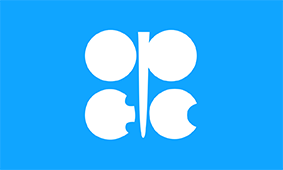
Floating storage bookings continue to rise globally

According to the data, vessel delivery locations include Singapore, the US west coast, the US Gulf coast, South Korea and the UK. Roughly half the fixtures are for six months, while most others range between two and four months. Three of the fixtures are for one year.
Chartering rates for those VLCCs under 15 years old have been $70,000-80,000/d, although a few fixtures have been done as high as $120,000-135,000/d as supply tightened. Older VLCCs have typically achieved rates of $40,000-50,000/d.
A total of three Suezmaxes had also been booked for floating storage by 30 March, two at a rate of $55,000/d, according to the data. Additionally, a lone MR rate was reported at $28,000/d for a 2007-built vessel.
The rush of floating storage opportunities has come as the global crude market has become oversupplied by roughly 20mn b/d, according to Ridgebury Tankers chief executive Robert Burke.
Although most of the floating storage opportunities have been limited to VLCCs, increased opportunities for smaller crude tankers and clean tankers are likely in the near term. During an online Capital Link International Shipping Forum panel yesterday, Burke said Ridgebury has received floating storage offers for its Suezmaxes, while Tsakos chief executive Nikos Tsakos said his company's Aframaxes have received floating storage offers. Additionally, tanker owners at a separate panel said increased clean tanker storage opportunities were likely in the near future.
Clean and dirty tanker rates will receive upward pressure from increased floating storage in the near term because it will tighten tonnage supply.
By Michael Connolly


Trump weighs using $2 billion in CHIPS Act funding for critical minerals

Codelco cuts 2025 copper forecast after El Teniente mine collapse

Electra converts debt, launches $30M raise to jumpstart stalled cobalt refinery

Barrick’s Reko Diq in line for $410M ADB backing

Abcourt readies Sleeping Giant mill to pour first gold since 2014

Nevada army depot to serve as base for first US strategic minerals stockpile

SQM boosts lithium supply plans as prices flick higher

Viridis unveils 200Mt initial reserve for Brazil rare earth project

Tailings could meet much of US critical mineral demand – study

Kyrgyzstan kicks off underground gold mining at Kumtor

Kyrgyzstan kicks off underground gold mining at Kumtor

KoBold Metals granted lithium exploration rights in Congo

Freeport Indonesia to wrap up Gresik plant repairs by early September

Energy Fuels soars on Vulcan Elements partnership

Northern Dynasty sticks to proposal in battle to lift Pebble mine veto

Giustra-backed mining firm teams up with informal miners in Colombia

Critical Metals signs agreement to supply rare earth to US government-funded facility

China extends rare earth controls to imported material

Galan Lithium proceeds with $13M financing for Argentina project

Kyrgyzstan kicks off underground gold mining at Kumtor

Freeport Indonesia to wrap up Gresik plant repairs by early September

Energy Fuels soars on Vulcan Elements partnership

Northern Dynasty sticks to proposal in battle to lift Pebble mine veto

Giustra-backed mining firm teams up with informal miners in Colombia

Critical Metals signs agreement to supply rare earth to US government-funded facility

China extends rare earth controls to imported material

Galan Lithium proceeds with $13M financing for Argentina project

Silver price touches $39 as market weighs rate cut outlook

















